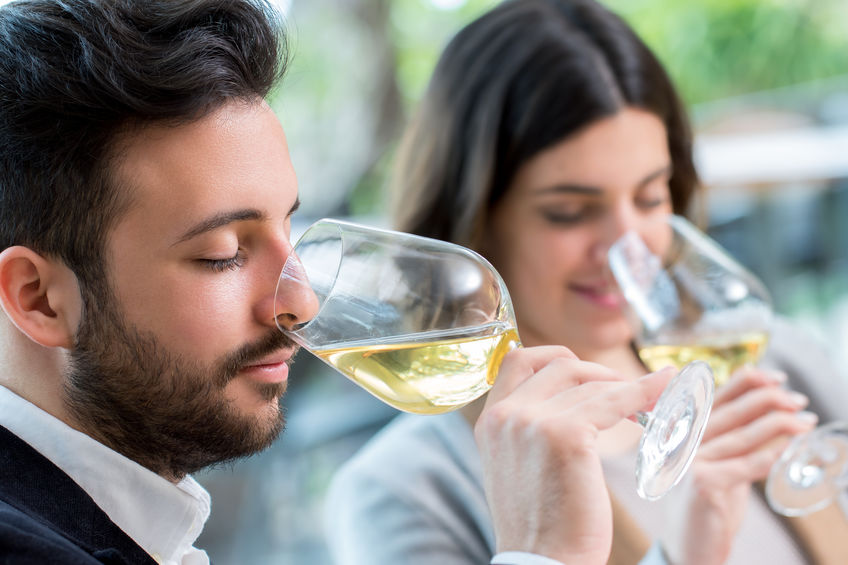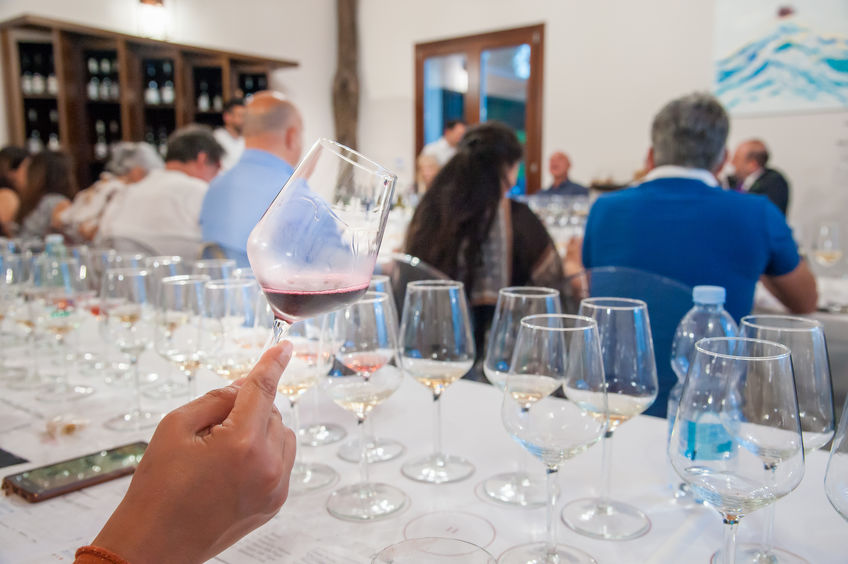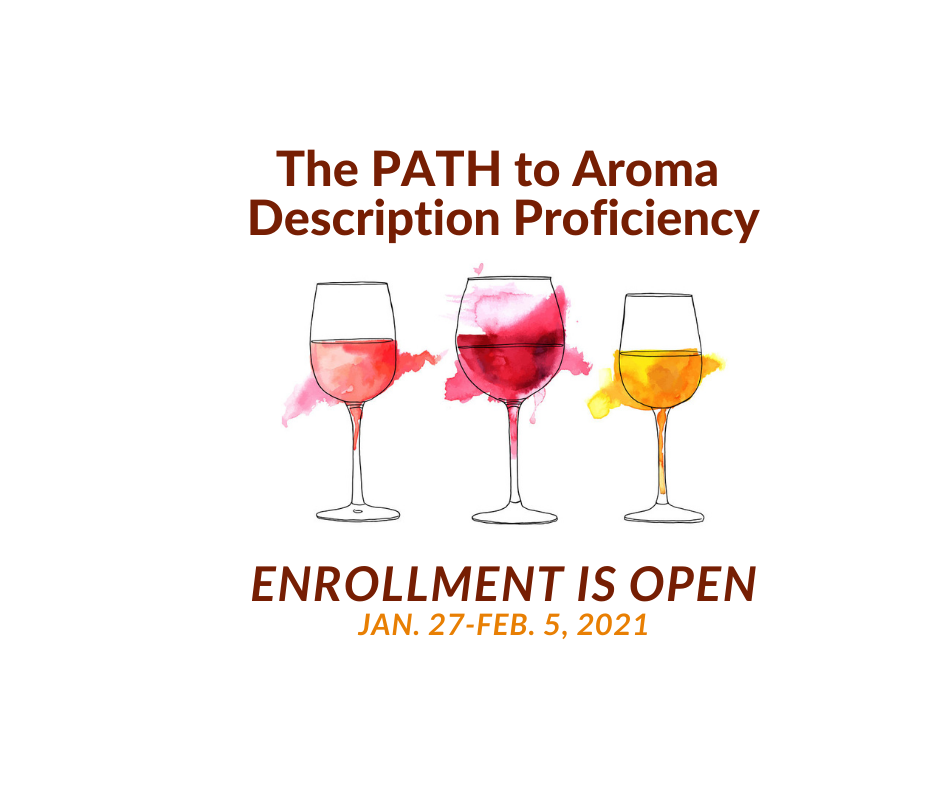Training for Blind Wine Tasting Challenges
Does it (really) Improve Your Sensory Skills?
Blind wine tasting, according to most wine organizations, is the ability to deduct a "wine CV" (grape variety, the region of origin, and vintage) from the perceptions experienced when you assess the quality of the wine: from its appearance, smell, taste, and mouthfeel.
It is impressive when people succeed, demonstrating their ability to match their perceptions and wine knowledge.

Have you heard about the Varsity Blind Wine Tasting Match in the UK?
The Oxford University Blind Tasting Society competes every year against their Cambridge University rival in the Varsity Blind Wine-Tasting Match. Champagne House Pol Roger sponsors the event since 1953.
"The aim of this game is to identify the grape variety used, its origins, and the vintage of the wine. This can be achieved through deduction from an accurate description of the wine's appearance, aroma, flavour, and structure." [1]
I came across research investigating if the training to perform at such a blind wine tasting competition improves the tasters' abilities to smell and taste.
Sneaking in a Blind Wine Tasting Competition
The researchers based in UK and Denmark [2] had the chance to partner with the Oxford University Blind Tasting Society to test their hypotheses.
The researchers asked whether the Oxford students' training to prepare for the competition helped them develop a superior ability to detect and identify familiar aromas.
Therefore, they recruited two groups of students to compare their olfactory abilities.
- Group 1: 14 students of the Society, who committed to training for blind wine tasting at least one 3-hour session a week for five weeks
- Group 2: 12 students enrolled in a Psychology class (they get credits to participate in research!)
All participants claimed to have no olfactory impairment.
The Experiment
The two groups attended two similar sessions five weeks apart, during which they performed an olfactory assessment test to measure:
- Their detection threshold for n-butanol, a compound commonly used for that purpose;
- Their ability to differentiate a series of 32 odorants;
- Their skills in identifying correctly 16 familiar aromas.
Performances at week 1 were compared with performances at week 5, to assess any difference.
What does a Blind Wine Tasting Training Entail?
The Oxford Society students performed the test before and after their 5-week training to blind taste wine.
The Blind Wine Tasting training was led by a coach, at least once a week for five weeks.
During 3 hours, they blind-tasted flights of six wines and practiced deducting each wine's CV on their own.
The training happened through discussions post tastings to reveal the expected answers and understand why there were mistakes.

The Learnings
Overall, the training followed by the Oxford Society students contributed to a better discernment of the 32 odorants in the differentiating task.
There was no apparent benefit in lowering their detection threshold for n-butanol or improving their ability to identify the 16 familiar aromas.
It is worth noting that the Oxford Society students demonstrated superiority in performance before their training started.
Where to Start your Wine Tasting Education?
By Improving your Sensory Description Ability or by Expanding your Wine Knowledge?
Training wine enthusiasts in performing blind wine tasting is the wine certification schools' standard education method.
Therefore, this research suggests that such training may improve the tasters' ability to discern different wine style characteristics and to associate them with a grape variety, a region of origin, or vintage.
The study is, however, non-conclusive on the ability to describe wine aromas.
Other research has shown that the ability to describe wine aroma precisely improves when following sensory training, using aroma standards, and repeated tasting on similar wines.
And the longer the practice, the more aromatic perceptions the tasters can identify.
The researchers reckoned that blind wine tasting involves more than wine sensory perception identification. It "involves the acquisition of theoretical wine knowledge as well as the ability to recall past wines to imagine idealized wine prototypes to aid in the deduction process."
In my honest opinion, you need to develop your sensory skills first to facilitate the assimilation of the theoretical wine knowledge.
Superior sensory identification skills also ease retrieving this information once you practice the deductive process of guessing the "wine CV."
When you can't decompose your perceptions analytically, how can you associate them with grape varieties, a region of origin, or a vintage?
The acquisition of wine knowledge before the sensory skills leads to halo and logical errors, two classical psychological biases that appropriate sensory practices minimized in their blind wine tasting approach.
How can you start your wine sensory training?
You can start today by increasing your awareness of the scents surrounding you and by recognizing them.
Consider joining my course "The PATH to Aroma Description Proficiency", when it is open for enrollment.
This program is for you (or someone you know) if you are passionate about learning more about wine, you spend time online, reading the book classics, or attending virtual tastings whenever you can, and you have realized you need to enhance your tasting skills to make progress.
The PATH is the only online program of its kind that teaches you the fundamentals of wine tasting and takes you through structured training to enhance your aroma description skills week after week.
Published February 4, 2021
References
[1] Oxford University Blind Tasting Society Facebook Page. https://www.facebook.com/OxfordUniversityBlindTasting/
[2] Wang, Q.J., Fernandes, H.M. & Fjaeldstad, A.W. Is perceptual learning generalisable in the chemical senses? A longitudinal pilot study based on a naturalistic blind wine tasting training scenario. Chem. Percept. (2021).


